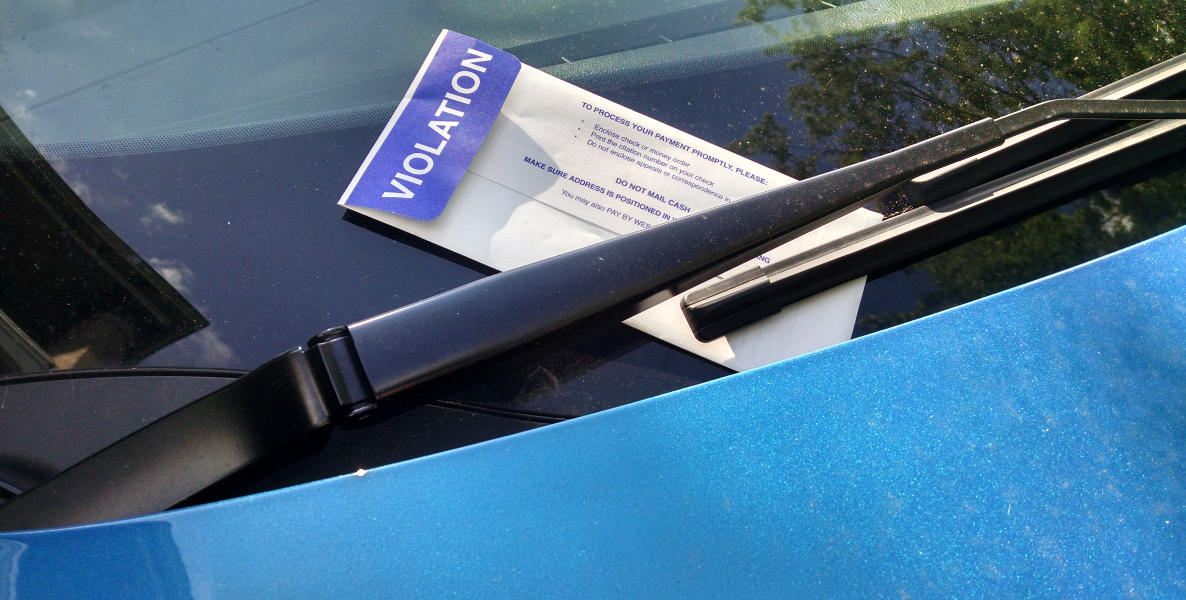America’s court system is a lot like its automobiles: If we were to redesign the whole thing from scratch with today’s technology, there’s no way we would create—let alone accept—something as inefficient, anachronistic, and harmful as what we have now. Much like Tesla is dragging the auto industry kicking and screaming into the future, a company out of Michigan called Court Innovations is pushing back against the unfathomable inefficiency of local courts with an online adjudication system called Matterhorn.
America’s court system is universally backlogged. Cases that should only take a few minutes to resolve sit around for months before litigants have their turn in front of a judge. That’s why Court Innovations has created software to enable cases to be heard and decided entirely online. Although similar programs exist for proceedings that are already conducted online, such as parking tickets, Matterhorn is the first in the country to allow citizens, attorneys, prosecutors, police, and judges to handle an actual civil docket online. The goal is to make it easier for people to deal with their legal issues, all while making courts more efficient and making outcomes more just.
Court Innovations’ co-founder is JJ Prescott, a professor at the University of Michigan Law School. One day, Prescott and one of his former students were “tossing around ideas about how to do something in the real world,” he says. Their initial focus was on outstanding minor arrest warrants—for example, failure-to-pay and failure-to-appear warrants. “There are so many outstanding warrants; but 99 percent of the time if you put the citizen with the warrant in a room with a judge, the two of them can resolve the dispute and the warrant can be withdrawn.” The problem is that it’s difficult to get people in front of judges in an actual brick-and-mortar courthouse.

Many of us can’t fathom not going to court if our rights are on the line. Especially since not showing up means a default judgment, whereby the opposing party—like the Parking Authority—automatically wins. But for many low-income Americans, the realities of life outweigh the need to go to court. Wage workers might get fired if they miss a shift; a single mother might not be able to find childcare; or transportation might not be practical. On top of all that is the actual stress of being in court. “We often assume that people value the opportunity to have their day in court in front of a judge,” says Prescott. “But when there are 50 people watching and you don’t know what you’re doing, it can be extremely stressful. And in the end, they might not advocate for themselves very well.”
Matterhorn handles many different types of civil matters, including parking tickets, moving violations, warrants, child support and small claims, all of which would otherwise require being heard before a judge or other court staff. (Most are too minor to justify hiring a lawyer.) It’s designed to be easy to use for actual citizens. Users simply log on, and the system—which is integrated with the court’s internal data system—tells them what cases they have that are open. The user selects a case, and is then walked through the process of providing information and making their argument. They can write a narrative and even attach documents and photographs as exhibits.
People’s cases are resolved much faster: In one district, total case completion time was reduced from 45 days to just five. On the administrative side, one court saw man-hours per case decreased by 82 percent, from 157 minutes to 27 minutes.
Their argument is then sent to the opposing party (often a prosecutor or police officer), who enters their response and, in many cases, recommends a disposition. That recommendation is often more lenient than the punishment for the original charge. Finally, the case is reviewed by the judge, who can either make a ruling or ask the parties for more information, in which case the cycle starts over again.
Judges like the system because it enables them to maintain complete control over their docket. No decision-making is automated; judges still make all of the decisions, and in fact, they decide what types of cases are even eligible for online adjudication.
For litigants, the fact that they can do things slowly and one step at a time can help them make their case and improve their outcomes. “The ability to write something down can reduce their anxiety a lot. It gives them a voice. And this way they don’t forget what they were going to say in the heat of the moment,” says Prescott. The user gets to see where their case is in the process, much like tracking a UPS package online, so they always know their case’s status rather than having to call the court clerk’s office over and over again for updates.
The electronic system has a serendipitous additional benefit: Less bias. “We only put relevant information in front of decision-makers,” says Court Innovations CEO MJ Cartwright. “No information regarding race or socioeconomic status is shown to anyone.” The only identifier—which Cartwright admits could contribute to bias—is the person’s name.
To date, over 8,000 cases have gone through Matterhorn’s system in 19 courts in Michigan and Ohio. And both litigants and courts see tangible benefits almost immediately. People’s cases are resolved much faster: In one district, total case completion time was reduced from 45 days to just five. On the administrative side, one court saw man-hours per case decreased by 82 percent, from 157 minutes to 27 minutes. “Once Matterhorn is installed, all cases—whether they go through Matterhorn or are in-person instead—close faster in every single court that we’re in,” says Cartwright.
For litigants, the fact that they can do things slowly and one step at a time can help them make their case and improve their outcomes. “The ability to write something down can reduce their anxiety a lot. It gives them a voice. And this way they don’t forget what they were going to say in the heat of the moment,” says Prescott.
Court Innovations started as a project funded by the University of Michigan. But they had trouble getting courts’ attention; from a court’s perspective, a professor could leave, die or just get tired of the work, and then they’d be stuck with a complex system and no customer support. “We had to look like what they think a software company looks like,” says Prescott, “and we had to convince them that we’d be around five years from now.” Since courts are used to dealing with for-profit software companies, Court Innovations took the for-profit route. Prescott’s goal was never to churn out profits; the goal is to create a sustainable business model so that courts can continue to receive the technical support they need to fully utilize and expand online adjudication. Right now, courts are only charged about five dollars per case, enough to provide those services and keep Court Innovations solvent and growing.
Matterhorn is currently in discussions with 10 other states who are interested in their system. Although they’ve only had a few inquiries from Pennsylvania courts, they are optimistic that the system can be brought here. “We’ve heard that in particular Philly would be a great area for it,” Cartwright says. It would take our local court administration deciding to take this on, but looking at the caseloads in Philadelphia, it’s pretty clear that we could use the help. In 2015 alone, Philadelphia’s courts handled 130,000 traffic tickets, issued 235,000 arrest warrants, and saw 85,000 civil complaints filed.
Photo header: Flickr/Andrew_Writer



